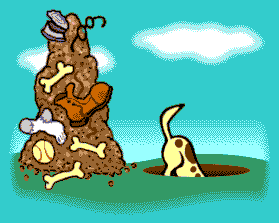 138.06 SINGLE BREED CHAMPIONSHIP SHOWS TO BE ABLE TO
APPOINT BEST IN SHOW JUDGES
138.06 SINGLE BREED CHAMPIONSHIP SHOWS TO BE ABLE TO
APPOINT BEST IN SHOW JUDGES
Wednesday, 17 May, 2006
The Kennel Club has become aware that some Breed Clubs
have been having difficulty finding suitable people to act as
Referees at shows. Many people did not want to commit to being
at a show all day knowing they may never be called upon to officiate.
To respond to this need, and following a direct request from a
breed club, the General Committee has decided to assist show organisers
by allowing more flexibility in judging arrangements.
It was agreed that Breed Clubs can, in future, appoint
a Best in Show Judge at Single Breed Championship Shows if they
wish. If a Best in Show Judge is appointed they would judge all
show awards after the Best of Sex cards have been awarded, i.e.
Best in Show, Best Veteran in Show, Best Puppy in Show and any
other classes or awards scheduled after the Best of Sex.
Such an appointment will need to be submitted to the
Judges Section of the Kennel Club for approval, but would not
be subject to the 9 month rule between appointments to judge Best
in Show at Championship Shows.
Those Breed Clubs that wish to continue appointing
a Referee rather than a Best in Show Judge will be free to do
so. This change does not affect Breed Club Open Shows as existing
regulations already allow the appointment of a Best in Show Judge.
Kennel Club Secretary, Caroline Kisko, said “We
know that a great deal of administration and hard work goes behind
staging a successful and enjoyable show and the General Committee
believes that this change in the regulations will go some way
to helping hard pressed club secretaries with their arrangements.”
The following amendments were approved with effect
from 1 January 2007:
F(1)21.c.
FROM:
If more than one Judge is appointed for any form of
competition, a further Judge must be appointed to act as Referee
and the name published in the Schedule.
TO:
If more than one Judge is appointed for any form of
competition, a further Judge must be appointed to act as Referee
and the name published in the Schedule. However, at a Single Breed
Championship Show, where more than one judge is appointed, the
society may appoint a Best in Show Judge instead of a Referee,
whose name must be published in the schedule.
F(1)24.d.(1)
FROM:
d. Application for Approval for Judges.
(1) Judges to award Challenge Certificates and Referees.
TO:
d. Application for Approval for Judges.
(1) Judges to award Challenge Certificates, Referees.
and Best in Show Judges at Single Breed Championship Shows.
F(1)24.d.(3)
FROM:
(3) Judges for Best in Show.
TO:
(3) Judges for Best in Show (excluding Single Breed
Championship Shows).
(Amendments underlined).
Amendments with effect 1 January 2007.
17 May 2006
ENDS
076.06 KENNEL CLUB CHARITABLE
TRUST HELPS THE ANIMAL HEALTH TRUST CONTINUE GROUNDBREAKING GENETIC
RESEARCH YOU CAN HELP TOO AT CRUFTS
Friday, 3 March, 2006
PLEASE NOTE
THAT WE HAVE NOT BEEN INCLUDED DUE TO THE LACK OF SAMPLES.
PLEASE GET YOURS SENT IN SO
THE BREED DOES NOT MISS OUT ON THIS FUNDING.
Genetic breakthrough
During 2005 scientists at the
Animal Health Trust identified the genetic mutations responsible
for hereditary cataract in the Staffordshire Bull Terrier and
juvenile cataract in the Boston Terrier and have developed DNA
diagnostic tests that are now available to distinguish carrier,
clear and affected dogs. The studies, which also included the
development of a diagnostic test for L-2-HGA in Staffordshire
Bull Terriers, have been funded in part by the Kennel Club Charitable
Trust, which through its Health Foundation Fund helps pay for
research to develop new DNA tests for inherited conditions. This
allows breeders to screen their breeding stock before they are
used for breeding.
“The work done by the Animal
Health Trust has been exceptional. Its findings will lead to improvements
in the health of several breeds of dog.” said Kennel Club
Charitable Trust chairman Mike Townsend.
New research
Now, funded by a £250,000 grant from the Kennel Club Charitable
Trust, the same team of researchers are starting an exciting new
project to study the genetics of hereditary cataract (HC) and
progressive retinal atrophy (PRA) in other breeds.
Over the next three years the
Trust’s scientists aim to identify the genetic mutations
that are responsible for HC in the Golden Retriever and the American
Cocker Spaniel and for PRA in the Golden Retriever and the Tibetan
Spaniel. They will develop DNA diagnostic tests that breeders
can use to eliminate these debilitating diseases from their breeds.
Additional breeds to be studied
In addition
to the breeds listed above the Trust will investigate the genetics
of HC and PRA in any breed for which they collect sufficient DNA
samples. The success of this research will largely depend on the
successful collection of DNA from dogs that can usefully contribute
to the research.
How to help
The Trust will be launching its campaign to collect DNA samples
from its stand at Crufts. Any dog of any breed that has ever been
diagnosed as affected with either HC or PRA, or close relatives
of affected dogs, can help with their research to identify the
genetic cause of these diseases. Visitors and exhibitors can help
by picking up a DNA sampling pack from the AHT stand in Hall 5
(stand No 16). Can your dog help the AHT add hereditary cataract
and progressive retinal atrophy to the list of DNA tests available?
Menu.

